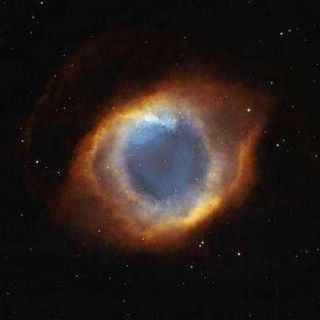As Katrina Turns - Contrasting Columnists
In Rochelle Riley's first Detroit Free Press column on Katrina, which ran on September 7, she, like so many other sufferers of Bush Derangement Syndrome blasts the president unmercifully.President George W. Bush is so out of touch with folks who don't live like he does, so disconnected from average Americans, that he doesn't understand that people with no savings can't afford a limit on Social Security; that people without jobs cannot count on employer-funded health insurance; that people without means, without cars, without family, cannot simply walk away from their homes.Not Bush-bashing? Who is she trying to kid?
People who are poor do not live like you, Mr. President. It is those people, poor and black, poor and white, poor and Cajun, who were left to drown in New Orleans.
Part of Bush's problem is his friends. He appointed Michael Brown as Federal Emergency Management Agency chief after Brown was forced out of his previous job as commissioner of the International Arabian Horse Association. Brown's greatest strength: being friends with Joe Allbaugh, manager of Bush's 2000 campaign, according to the New York Daily News.
[ . . .]
Forget politics. Forget race. Forget the 2008 presidential election. This isn't Bush-bashing. This is an American tragedy, an avoidable one. And when we have re-raised an American city, somebody should pay for the dead.
She does change her tune a bit in her September 9 column. I think some facts were beginning to roll her way. She does work in a newspaper office. In theory, there should be lots and lots of facts at her disposal. What she does with them is anyone's guess. Her focus in this, her second column is totally different.
Television, which once kept us informed, has now made us voyeurs, living every moment that we can in moments that we wouldn't wish on anyone. Why would we want to be in the flood? Why do we want to sit and watch images shot as if we're in boats floating in toxic water, walking down streets with armed officers searching for those who would interfere with rescues?Hmmm, broadcasting our weaknesses to our enemies? Has she become a "neocon"?
Unlike 9/11, which was shocking, unexpected and quickly overtaken by thoughts of revenge, Katrina was expected, poorly received and quickly overtaken by thoughts of congressional hearings and accusations of who is most to blame. And every charge spurs debate, most of which can be found day or night -- on television.
And here's a thought: Why does America continue to broadcast its weaknesses, showing every enemy what we do and don't know how to do and protect against? Could we be more naive than to think the world is ignoring this? At what point is our safety more important than our curiosity?
In the days before unlimited coverage, bad news after a hurricane or flood or mine disaster came by telephone, and bodies were rarely seen before funerals.
By her September 14th column, she writes like someone who wants her readers to forget her previous hysterical ranting.
You cannot predict the wind. You cannot predict the precise place a hurricane will hit. But you can predict the duties that come after. You can predict the work that must be done.She now sounds downright reasonable. It's too bad she couldn't have begun that way.
And the problem with the very necessary analysis of what went wrong with the response to victims of Hurricane Katrina is that we live in America, where we've made it impossible to talk about how to protect each other as Americans without raising our divisiveness first, riding it like horses, with our red or blue flags raised higher than our red, white and blue one.
If we don't take politics out of the discussion and look instead at how local, state and federal officials failed in New Orleans, we will not respond more effectively next time.
And the only people excited about our continuing chaos and inability to have a discussion are those who would potentially harm us more, not with natural disasters but with man-made ones.
We look silly for refusing to discuss what went wrong for fear of political fallout.
For an example of someone who thought BEFORE he wrote, here is Thomas Sowell.
Whatever later investigation may turn up about the mistakes of the Federal Emergency Management Agency (FEMA) in New Orleans, it is unlikely to show the shrill charges of "racism" to be anything other than reckless political rhetoric.And days before that column, Mr. Sowell wrote this:
FEMA has bungled other emergencies where most of the victims were white and in previous administrations. Like many government bureaucracies, FEMA is an equal-opportunity bungler.
Many people who think that government is the answer to our problems do not bother to check out the evidence. But it can be eye-opening to compare how private businesses responded to hurricane Katrina and how local, state and national governments responded.
Well before Katrina reached New Orleans, when it was still just a tropical depression off the coast of Florida, Wal-Mart was rushing electric generators, bottled water, and other emergency supplies to its distribution centers along the Gulf coast.
Nor was Wal-Mart unique. Federal Express rushed 100 tons of supplies into the stricken area after Katrina hit. State Farm Insurance sent in a couple of thousand special agents to expedite disaster claims. Other businesses scrambled to get their goods or services into the area.
Meanwhile, laws prevent the federal government from coming in without the permission or a request from state or local authorities. Unfortunately, the mayor of New Orleans and the governor of Louisiana are of a different party than President Bush, which may have something to do with their initial reluctance to have him come in and get political credit.
In the end, there was no political credit for anybody. There was just finger-pointing and the blame game.
Government cannot solve all our problems, even in normal times, much less during a catastrophe of nature that reminds man how little he is, despite all his big talk.Which writer makes more sense to you? I suppose that depends on the depth of your Bush-hatred, vs how much or if you are willing to discuss the real situation surrounding Katrina.
The most basic function of government, maintaining law and order, breaks down when floods or blackouts paralyze the system.
During good times or bad, the police cannot police everybody. They can at best control a small segment of society. The vast majority of people have to control themselves.
That is where the great moral traditions of a society come in — those moral traditions that it is so hip to sneer at, so cute to violate, and that our very schools undermine among the young, telling them that they have to evolve their own standards, rather than following what old fuddy duddies like their parents tell them.
Now we see what those do-it-yourself standards amount to in the ugliness and anarchy of New Orleans.
In a world where people flaunt their "independence," their "right" to disregard moral authority, and sometimes legal authority as well, the tragedy of New Orleans reminds us how utterly dependent each one of us is for our very lives on millions of other people we don't even see.
Thousands of people in New Orleans will be saved because millions of other people they don't even know are moved by moral obligations to come to their rescue from all corners of this country. The things our clever sophisticates sneer at are ultimately all that stand between any of us and utter devastation.
Any of us could have been in New Orleans. And what could we have depended on to save us? Situational ethics? Postmodern philosophy? The media? The lawyers? The rhetoric of the intelligentsia?
No, what we would have to depend on are the very things that are going to save the survivors of hurricane Katrina, the very things that clever people are undermining.
New Orleans can be rebuilt and the levees around it shored up. But can the moral levees be shored up, not only in New Orleans but across America?
Labels: BDS, female genital mutilation, Hurricane Katrina, Rochelle Riley, Thomas Sowell

 CHALLAH AKBAR
CHALLAH AKBAR











0 Comments:
Post a Comment
<< Home